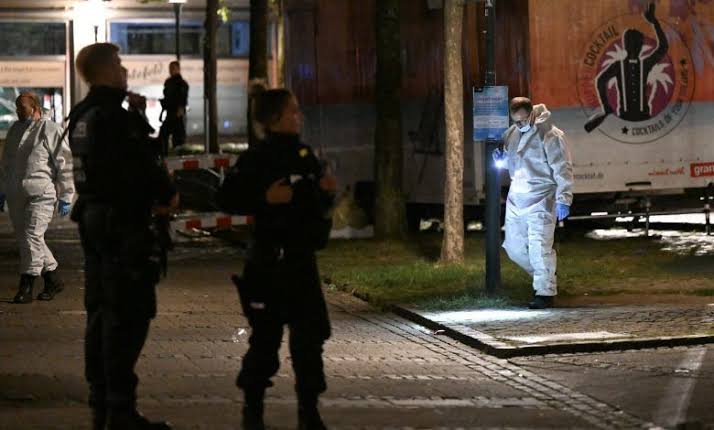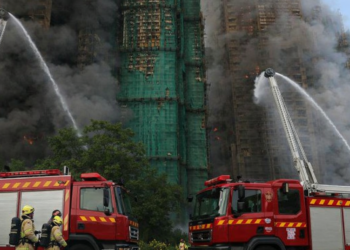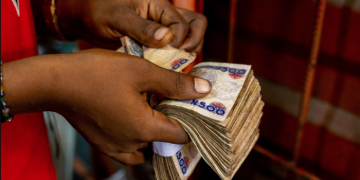A man went on a stabbing spree at a festival in Solingen, a city in western Germany, killing three people and injuring eight others. As authorities scramble to piece together what happened, the question of whether this was a terrorist attack looms large. The suspect is still at large, leaving a shaken community to wonder if they are safe.
Why It Matters
Police have detained a 15-year-old in connection with the attack, but it remains unclear if this person had any direct involvement. Markus Caspers, an official from the public prosecutor’s office in Duesseldorf, hinted at a possible terrorist motive, stating that there was no apparent reason for the violence and that the victims appeared to have no connection to each other. How convenient, isn’t it? When in doubt, just pull the terrorism card.

Thorsten Fleiss, a police official, revealed that the assailant seemed to target his victims’ throats, a terrifying detail that has only added to the fear gripping the city. Interior Minister Nancy Faeser assured the public that security forces were doing everything they could to catch the suspect, but for many, those words offer little comfort.
The attack unfolded at the Fronhof, a market square in Solingen, where the city was celebrating its 650th anniversary with live music and festivities. A German musician known as Topic was performing nearby when the chaos erupted. According to his Instagram post, he was initially told to keep playing to prevent panic. But as the gravity of the situation became clear, he and others were forced to take cover in a nearby store while police helicopters buzzed overhead.
What They Are saying
The festival, which was supposed to be a joyful celebration, was abruptly cancelled. Flowers and candles now line the barriers set up by police, a somber tribute to those who lost their lives in what should have been a day of revelry. “We are full of shock and grief,” Solingen Mayor Tim-Oliver Kurzbach lamented. No jokes, who wouldn’t be after such a senseless act?
This stabbing spree has reignited discussions on Germany’s knife laws, which the government had already planned to tighten. Fatal stabbings and shootings are rare in the country, but they’re not unheard of. In June, a police officer was fatally stabbed during a right-wing demonstration in Mannheim, and a train attack in 2021 left several injured.
North Rhine-Westphalia’s interior minister, Herbert Reul, described the attack as a deliberate act against human life, but wouldn’t speculate on the motive. And as if the situation wasn’t already loaded enough, Bjoern Hoecke, a top candidate for the far-right Alternative for Germany (AfD) party, wasted no time in politicizing the tragedy. He took to social media to stir the pot, asking if Germans really want to “get used to this” and calling for an end to “forced multiculturalism.”
Bottom Line
With three state elections on the horizon, it’s no surprise that this incident has quickly become a talking point for all the wrong reasons. In a country known for its precision and order, the chaos in Solingen serves as a sad reminder that no place is immune to violence.

















